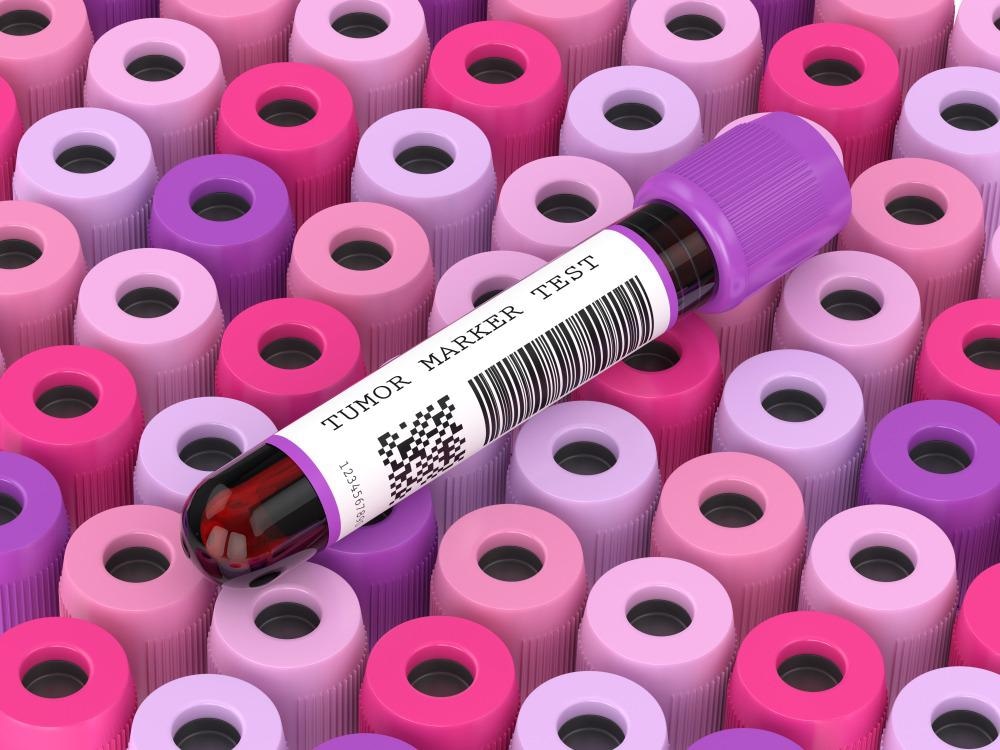What is clinical proteomics?
The proteome is the set of proteins produced by an organism at a given time. The proteome reflects the transcriptome and is also influenced by other factors, such as oncogenic activation, chromosome imbalances, and translation errors. In recent years, proteomics has emerged as an exciting area of scientific and medical research due to its implications for the development of diagnostic and prognostic markers of disease and therapeutic targets for a wide range of diseases such as cancer, infectious diseases, and immune rejection after transplantation.

Image Credit:
Applications of proteomics
Proteomics can be used to investigate several biological activities and states, it can tell us when and where proteins are expressed; calculate the rates of protein production, degradation, and steady-state abundance; reveal how proteins are modified; demonstrate the movement of proteins between subcellular structures; describe the involvement of proteins in various metabolic pathways, and show how proteins interact with one another. These uses of proteomics have made the discipline important in biomarker discovery and drug discovery.
Ethical themes in clinical proteomics
The field of proteomics is beginning to mature and due to its impact on the lives of patients, its responsibilities grow stronger. Guidance and regulations governing the sector must be driven by ethical considerations.
A recent systematic literature review of ethical issues in clinical proteomics published in 2021 in the journal Molecular & Cellular Proteomics highlighted ten ethical themes that they found to be apparent across the clinical proteomics studies included in the review. We discuss each of the ten themes below.
Standards and quality control
In proteomics, the quality of the underlying sciences feeds into the clinical utility of proteomic applications. Therefore, standard operating procedures and quality assurance must be established to enhance the reproducibility and interoperability of proteomic data. It is generally agreed that using incorrect, substandard, or non-validated methods in proteomics is an ethical transgression as well as a technical fault.
Integration of new technology
Proteomics must keep up to date with advances happening in associated scientific fields, particularly in the other omics fields. For example, it has been suggested that blockchain technologies should be leveraged to ensure transparent and secure data access management in proteomics. The most appropriate technologies must be adopted where possible.
Privacy
There is a level of concern over the possibility of identifying individuals via their proteomic profile. For example, it has been proven that prominent keratin proteins can be used to determine individual profiles. The field must take measures to ensure the privacy of all patients.

Image Credit: marekuliasz/Shutterstock.com
Sensitive data/discrimination
Related to privacy is the ethical concern of protecting sensitive data to prevent discrimination. As discussed above, proteomic profiles may be used to identify an individual. Therefore, information derived from proteomics must not be used to cause harm to or put any patient at a disadvantage. Proteomic profiles have the potential to reveal factors such as weight, ethnicity, gender, and allele status. Patients have the right to have this information kept private.
Conflicting rights and duties
It was noted that the duties owed to patients involved in proteomics studies may conflict with those owed to scientific advancement. Further to this, conflicts of interest may exist between the various stakeholders in clinical proteomics. Intellectual property (IP) protections are put in place to further scientific progress, however, current levels of protection make it challenging for scientists to access the work and materials required to make this progress happen.
Beneficence and justice
IP protections are imposing barriers that are particularly challenging to researchers working in low- and middle-income countries where profit-sharing, data-sharing, and benefit-sharing are considered to be prominent ethical issues in the field of proteomics.
Incidental findings
Incidental findings are potentially clinically significant observations that are unexpected and unrelated to the study’s purpose. The potential of incidental findings arising in proteomics studies has raised the question as to how this information should be stored and/or returned to the participants.
Regulation
National and regional regulations of relevance to proteomics studies must be observed, particularly those relating to informed consent. Additionally, there is a need to update regulations so that they are adequate to address issues of duties owed to patients and scientific progress.
International guidance
The field of clinical proteomics relies on the sharing of findings from studies conducted around the world. Therefore international guidance on ethical issues is required to ensure that patient welfare is assured. International collaboration is needed on ethical issues to establish thorough guidance.
Aims and goals
Guidance on ethics in proteomics should go beyond regulation to consider the fundamental questions facing the growing sector. Questions such as what are the goals of clinical proteomics should be addressed alongside those relating to the ethical aims of the field beyond the aim of avoiding legal liabilities.
As the field continues to grow, these ethical themes must be considered to establish an ethically sound research sector.
Sources:
- Frantzi, M., Latosinska, A., Kontostathi, G. and Mischak, H., 2018. Clinical Proteomics: Closing the Gap from Discovery to Implementation. PROTEOMICS, 18(14), p.1700463. analyticalsciencejournals.onlinelibrary.wiley.com/.../pmic.201700463
- Macklin, A., Khan, S. and Kislinger, T., 2020. Recent advances in mass spectrometry based clinical proteomics: applications to cancer research. Clinical Proteomics, 17(1). clinicalproteomicsjournal.biomedcentral.com/.../s12014-020-09283-w
- Mann, S., Treit, P., Geyer, P., Omenn, G. and Mann, M., 2021. Ethical Principles, Constraints, and Opportunities in Clinical Proteomics. Molecular & Cellular Proteomics, 20, p.100046. https://www.sciencedirect.com/science/article/pii/S1535947621000013
Further Reading